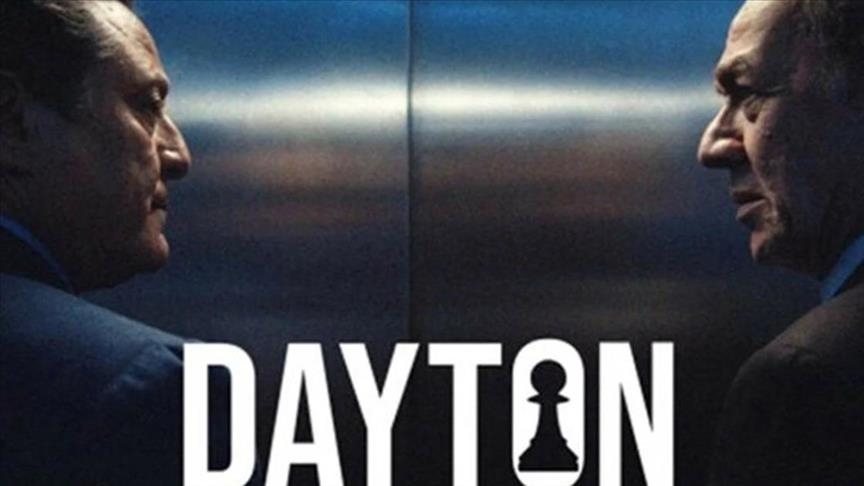ISTANBUL
A multi-episode TV show entitled Dayton will kick off on Tuesday on the Turkish public broadcaster TRT on the 28th anniversary of the Srebrenica genocide.
The first episode of the Dayton series, which is about the parties coming together in Dayton, Ohio, US, after the Serb forces siege Srebrenica and what happened in the process, will be screened on Tuesday evening at TRT 1 Public.
Viewers can watch other episodes of the series online on TRT platforms.
Dayton’s screenwriter Umit Cihan Canpolat told Anadolu that the TV series focuses on the 1995 Dayton Accords. The chess-like peace treaty process lasted a month and ended the Bosnian War between 1992 and 1995.
The bloody war in Bosnia-Herzegovina ended on Nov. 21, 1995, at Dayton Air Base in the US state of Ohio, with the Bosniak, Serb, and Croat sides reaching an agreement.
“To make the audience feel what Alija was fighting in a month, we preferred to tell the genocide that started in 1992 through a family,” Canpolat said, referring to Alija Izetbegovic, Bosnia-Herzegovina’s first president.
“It was the part in Dayton that appealed to us; we wanted to focus on the political tension and tell the story very well,” he added.
Canpolat said that each character in the series represents a different face of Bosnia-Herzegovina.
“Sometimes a family represents a whole country. In the series, we narrate the stories of a leader trying to piece his country together which was disbanded due to the genocide and a family broken up and reunited because of the same genocide,” he elaborated.
Izetbegovic, a politician, writer, and lawyer, came to international prominence during the country’s bitter 1992-1995 war and led the country to independence from former Yugoslavia.
Often dubbed the “Wise King,” Izetbegovic was a prominent Muslim thinker of the last century.
The first president of Bosnia-Herzegovina managed to gain independence for his country on March 1, 1992, months after Slovenia and Croatia broke away from former Yugoslavia.
During the 1995 Srebrenica genocide of thousands of Bosnian Muslim men and boys, Izetbegovic kept the spirit of resistance.
In November 1995, Bosniaks – amid international pressure – ended the war and signed the Dayton Agreement, bringing peace to the country.
After stepping down as chair of Bosnia’s presidency in 2000, Izetbegovic lived alone in his single-story home in the capital Sarajevo.
He is known for his profuse contributions to the Bosnian civil consciousness, writing several publications and periodicals throughout his career.
Leaving a flag to his country, Izetbegovic died due to natural causes on Oct. 19, 2003, eight years after the Dayton Agreement. He served as president of the Republic of Bosnia-Herzegovina from 1992 to 1996 and as chairman of the Bosnian presidency until October 2000.
Srebrenica genocide
In July 1995, Serb forces besieged Srebrenica in an attempt to establish a state by taking over territory from Bosnian Muslims and Croats.
The UN Security Council declared Srebrenica a “safe area” in the spring of 1993. However, Serb troops led by Gen. Ratko Mladic – later found guilty of genocide, human rights violations, and war crimes – overran the UN zone.
Dutch troops failed to act as Serb forces occupied the area, killing 2,000 men and boys in a single day on July 11.
About 15,000 Srebrenicans fled to the surrounding mountains, but Serb troops hunted them down and killed 6,000.
The bodies of the genocide victims were found in 570 different parts of the country.
In 2007, the International Court of Justice in The Hague ruled that a genocide had been committed in Srebrenica.
On June 8, 2021, UN tribunal judges upheld in a second-instance trial a verdict sentencing Mladic to life in prison for genocide, persecution, crimes against humanity, extermination, and other war crimes in Bosnia-Herzegovina.

